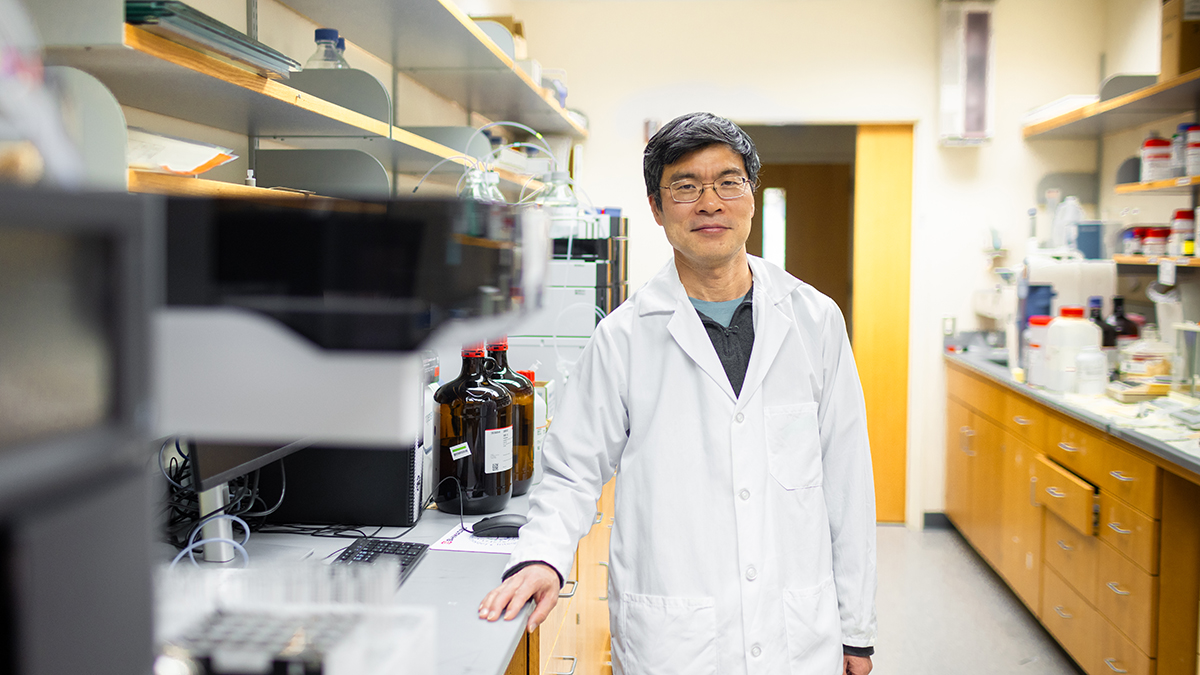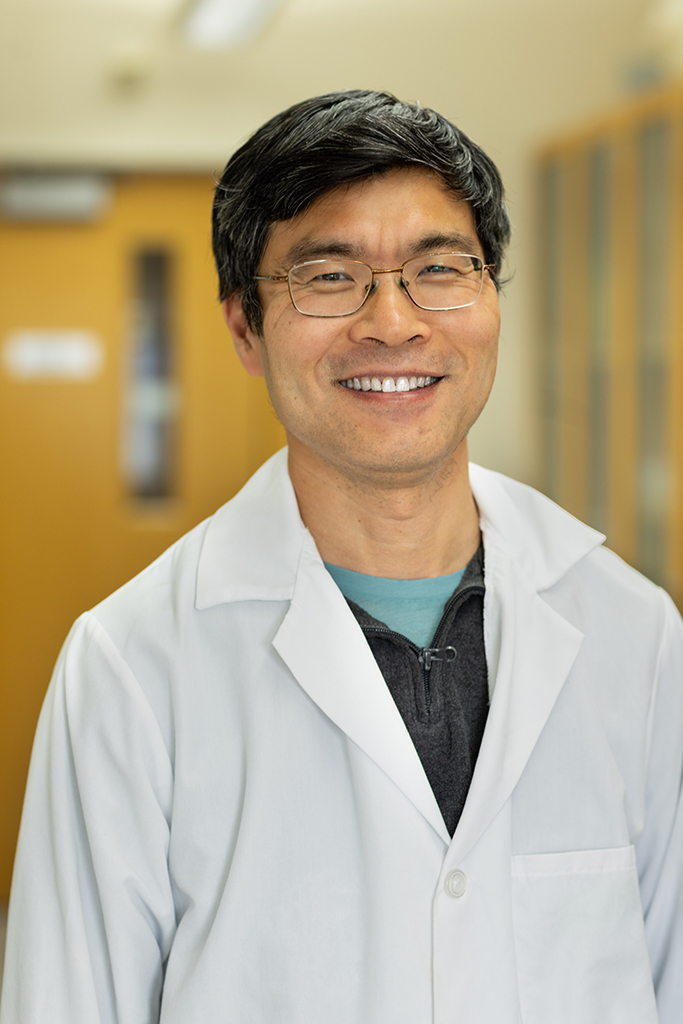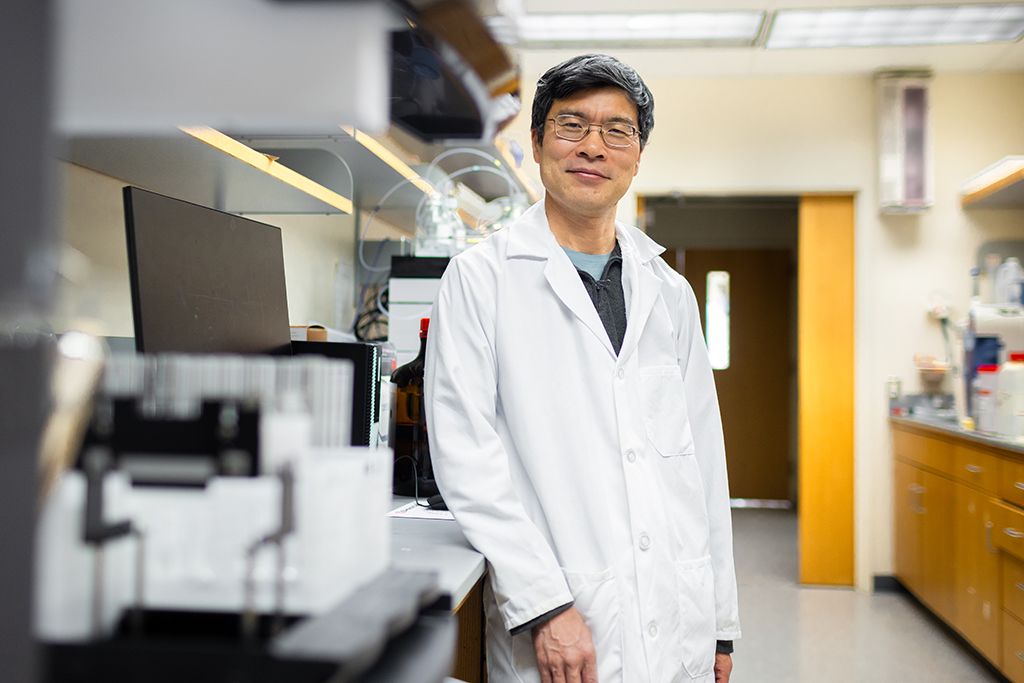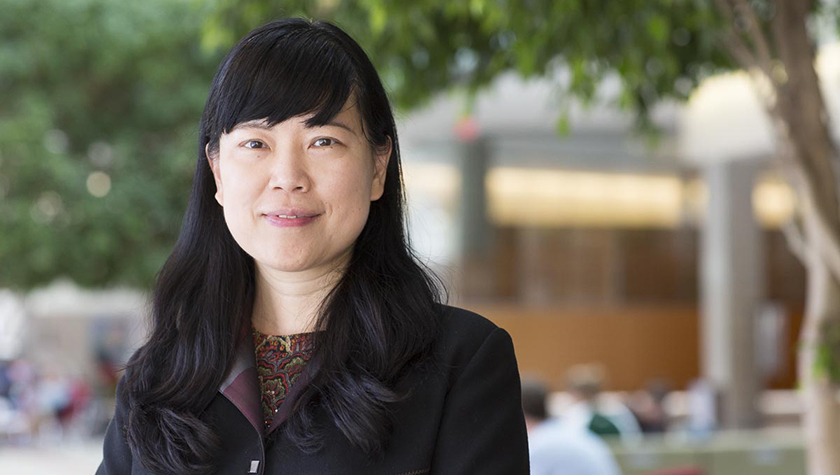
Professor Weiping Tang and collaborators have received a UW Research Forward grant to advance multidisciplinary research on Alzheimer’s and other neurodegenerative disorders
By Nicole Sweeney Etter
Researchers have long known that neurodegenerative diseases such as Alzheimer’s are associated with protein aggregates — misfolded proteins that clump together inside neurons, forming plaques and tangles that disrupt normal brain function. But the answer to a key question has remained elusive: how to eliminate this destructive buildup of proteins.
With support from a new Research Forward grant from the University of Wisconsin–Madison, Weiping Tang, Janis Apinis Professor of Pharmaceutical Sciences and director of the Medicinal Chemistry Center at the School of Pharmacy, is partnering with colleagues across campus on a two-year project to identify therapeutic peptides to induce the degradation of protein aggregates.
“Our goal is to generate sufficient preliminary results with this pilot grant to secure a major federal grant so we can make more meaningful progress towards treating neurodegenerative disorders such as Alzheimer’s disease,” Tang says.
“It is extremely challenging to develop therapeutics for neurodegenerative diseases, but we’ll aim to make as much progress as possible.”
–Weiping Tang
If successful, what the researchers learn could pave the way for new treatments to slow or halt the progression of Alzheimer’s, Parkinson’s, and other neurodegenerative diseases.
The Tang Research Group was among those selected for the University’s latest round of Research Forward grants, which are sponsored by the Office of the Vice Chancellor for Research and funded by the Wisconsin Alumni Research Foundation. The grant program aims to support multidisciplinary projects that are “high-risk, high-impact, and transformative.”
Tang, a co-investigator on the project, is collaborating with principal investigator Anjon Audhya, professor of biomolecular chemistry, and co-principal investigator Gaelen Hess, assistant professor of biomolecular chemistry.
“We each bring different expertise and work in different areas, and this Research Forward grant will allow the three of us to work together for the first time,” Tang says.

Audhya has developed models for inducing and imaging aggregate tau protein, which is one of the protein aggregates implicated in neurodegenerative diseases, and Hess has established a screening platform to identify novel peptides that can promote autophagy-mediated degradation.
“My expertise is more on the chemistry side and then also particularly on target protein degradation. My lab has been focusing on developing different technologies and molecules to degrade disease-associated proteins,” Tang explains. Tau is his next protein to target.
What makes this project novel is that it uses autophagy, one of the body’s natural mechanisms for breaking down and recycling cells. The ubiquitin-proteasome system, another way the body degrades proteins, has shown promise in other areas but hasn’t worked well on insoluble protein aggregates. For this project, the team will test two recently identified Proteasome-Independent Targetable (PRINT) Degraders on tau proteins and use high-throughput screening to identify other PRINT degraders. The team will also work to ensure their degraders selectively target aggregates.
“If the proteins are not in an aggregated form, they have their own function and it would not be good to degrade them,” Tang says.
The Tang Research Group has previously leveraged protein degradation to improve cancer treatment in a project funded by the National Institutes of Health. By comparison, the work on proteins associated with neurodegenerative diseases is even more complex and requires a very different model system, Tang notes.
“This represents a new direction and an exciting area for us to get into,” he says. “Overall, it is extremely challenging to develop therapeutics for neurodegenerative diseases, but we’ll aim to make as much progress as possible. Even a small step toward a new treatment would be significant.”

